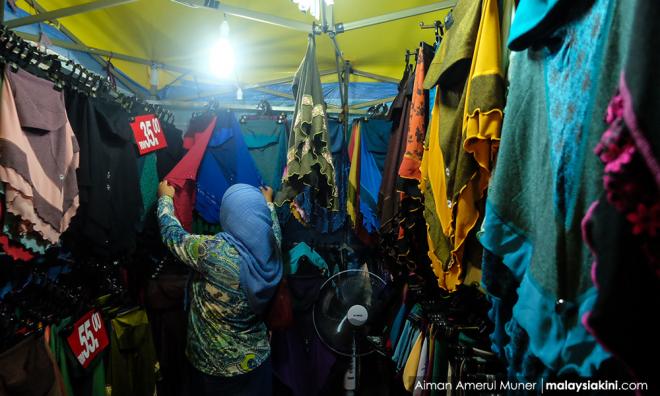
Prime Minister Muhyiddin Yassin has today announced a short-term economic recovery plan called the Plan Jana Semula Ekonomi Negara, or "Penjana" for short, which will involve RM10 billion in direct fiscal injection.
The plan involves wage subsidies, upskilling, tax holidays for investors, grants for businesses and other incentives.
Malaysiakini spoke to three economists to get their immediate thoughts on the plan.
Former Finance Ministry economist Hafiz Noor Shams describes the new plan as "a bit underwhelming and basically a continuation of the previous policies."
"The most important measure is probably the Covid-19 Bill and the suspension of contractual obligation.
"The previous policies were already underwhelming so it’s not doing much. It’s not chipping the edge," he said.
There are some good policies, he said, such as the public transport unlimited travel pass which costs RM30 a month, but these are just small measures and will not really make a difference.
"One example (of policies that will make a difference) is a large universal basic income for everybody, which is an income guarantee from the government to almost all in Malaysia to ensure that everybody is well taken care of.
"The second thing is involving job creation. For example, schools are having trouble reopening because there needs to be social distancing so that would suggest that we need more teachers. The schools could hire more teachers on a contractual basis and that would create jobs for many who have become unemployed," he said.
Grants take a long time to be given out, whereas a universal basic income and job creation are almost immediate, Hafiz added.
RM10b only to kickstart economy
Universiti Tun Abdul Razak economics professor Barjoyai Bardai told Malaysiakini that Penjana consists of short-term measures because it was announced as a short-term plan.
"Of course, RM10 billion of direct fiscal injection is not enough but that is why they keep emphasising that this is short-term. There are some long-term policies in there such as those regarding taxes but it is too long (a time) for the industry to see.
"The RM10 billion is just to kickstart the economy. It is for big businesses to keep on running, for small and medium enterprises (SMEs) who were considering to shut down to not do so and for micro-businesses.
"It is encouraging entrepreneurs to start new businesses instead of recovering their old ones," he said.

He said that more emphasis on entrepreneurship training is needed as reskilling is temporary and will not last more than 10 years as the country is heading into the Industrial Revolution 4.0 (IR4.0), which needs different skills.
"Obviously, industries need training based on their current model which is still the old economy, but (the government) should have gone radical and forced industries to migrate to IR4.0."
Meanwhile, Shazali Abu Mansor, an economics professor with Universiti Malaysia Sarawak, also said that Penjana is a continuation of the Prihatin economic stimulus package.
"I would have loved to see them handle unemployment and retrenchment better such as in the hotel and airlines industry.
"General training does not lead to secured employment. The government should give incentives to the companies directly so they can train their employees in the specific skills needed.
"Give incentives so that companies will re-employ these people who have been retrenched," he said.
Shazali is also of the opinion that the RM10 billion is not enough as it is not even half of the previous RM35 billion direct fiscal injection (under Prihatin).
"It would be better if it was at least RM20 billion. We need a direct injection of cash to people in need to expand the economy. We need people to be spending money," he added. - Mkini



No comments:
Post a Comment
Note: Only a member of this blog may post a comment.